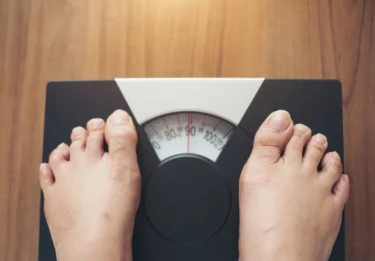Aloe Vera Juice: Uses, Benefits, Side Effects and More!
By Dr Rajeev Singh +2 more

Get,

to manage your symptom
Get your,


4 Cr+ families
benefitted

OTP sent to 9988776655



You’ve successfully subscribed to receive
doctor-approved tips on
Whatsapp

Get ready to feel your best.

Hi There,
Download the PharmEasy App now!!


Register to Avail the Offer
Send OTPBy continuing, you agree with our Privacy Policy and Terms and Conditions

Hi There,
Sign up on PharmEasy now!!
Trusted by 4 crore+ families

OTP sent to 9988776655



You have unlocked 25% off on medicines




Code: NU25

Comments


Leave your comment here
By Dr Rajeev Singh +2 more
Table of Contents
You may have come across plant that looks prickly on the outside but contains a soft gel-like substance within. This plant is known as Aloe vera.
Aloe vera is a succulent plant that resembles a cactus1. It primarily grows in dry regions of Africa, America, Europe and Asia. In India, it is commonly cultivated in states such as Rajasthan, Gujarat, Andhra Pradesh, Tamil Nadu, and Maharashtra2.

The scientific name of aloe vera is Aloe barbadensis miller and it belongs to the Liliaceae family. Its leaves are fleshy with tiny thorns at the edges. While its flowers are like tubes and its fruits have lots of seeds.
Aloe vera has been valued in various cultures for centuries, particularly in the context of skincare and general wellness practices. Ancient Greek scholars referred to it as a “universal remedy”, and it has reportedly been used by notable historical figures such as Queen Cleopatra, Alexander the Great, and Christopher Columbus2.
The part of aloe vera that is most commonly used in aloe vera juice is its leaf. Each aloe vera leaf has three parts2:
The nutritional composition of 100g Aloe vera juice is as follows3:
The aloe vera plant has many medicinal properties. Some studies suggest that aloe vera gel might help in wound healing. It is believed that this gel help enhance collagen production, influence the composition of collagen, and support improved cross-linking of collagen fibres, all of which are important aspects of tissue repair12.
Dr. Siddharth Gupta, B.A.M.S, M.D (Ayu)
Aloe vera juice is made from the clear gel inside the plant’s leaves and contains naturally occurring active components. Often consumed in summer, it is traditionally used in various cultures and is being studied for its potential role in hydration, digestive comfort, and as a source of certain vitamins and antioxidants. However, any health-related use should be discussed with a qualified medical professional, as therapeutic claims require proper scientific validation.

Aloe vera has been used traditionally for the treatment of diabetes since a long time in different parts of the world. Studies done in animals and even on humans have shown that aloe vera might have a positive effect on the blood sugar level. In some studies4, aloe vera gel was administered alone, while in some studies it was mixed with a medicine prescribed for diabetes. All of them showed that the consumption of aloe vera might help in lowering blood glucose levels. This may indicate that aloe vera might be helpful for diabetes. However, further studies are needed to ascertain such claims. Moreover, diabetes is a serious condition and must be diagnosed and treated by a doctor. Kindly ensure that you consult a doctor.

Aloe vera gel might help in lowering cholesterol and triglycerides. In a clinical trial4 it was seen that the administration aloe vera gel leaf extract might apparently lower the serum cholesterol and other fats (triglycerides and low-density lipoproteins). Additionally, it has been proposed that the combined effects on blood sugar and cholesterol might potentially reduce the risk of heart disease in individuals with diabetes. However, further research in humans is needed to confirm these findings. Therefore, it is important to consult a qualified healthcare professional before using aloe vera for these purposes.

Aloe era contains bioactive compounds called anthraquinone glycosides, which may contribute to its laxative effects by promoting bowel movements. One study5 found that a preparation containing Aloe vera could potentially alleviate symptoms associated with chronic constipation. However, further research is needed to substantiate these claims. However, more studies are required to prove such claims.

Aloe vera has been studied for its potential role in supporting gastrointestinal health. Some early research6 suggests it may have a soothing effect on the stomach lining and could be explored for its possible benefits in conditions such as gastric ulcers and inflammatory bowel concerns7. Many studies have been conducted to prove the use of aloe vera gel in the form of juice for ulcerative colitis, and irritable bowel syndrome (IBS), but the results were not consistent5. There is a need for more research as significant proof for using aloe vera to treat stomach problems and you must consult your doctor before using aloe vera for your stomach problems.

Aloe vera juice might help in keeping the skin hydrated. As dehydration causes increased oil production from our skin leading to an acne breakout, aloe vera gel might help with such acne by keeping the skin moist and hydrated. Therefore, consuming aloe vera gel might be helpful for skin health and might give supple and wrinkle-free skin8. However, more research is required to prove such claims.

In a study9 done on sheep, aloe vera juice was orally fed to the sheep. Following this, hair growth was seen in areas on the sheep that were losing hair because of a condition known as alopecia. It was hypothesised that this activity may be due to the enzymes, mucopolysaccharides, and anthranols present in aloe vera plant and may be an indicator that aloe vera might have potential hair growth action. However, there is a need for further studies in humans to understand the effectiveness of aloe vera for hair growth.

Aloe vera juice has been studied10 in laboratory settings to explore its potential role in weight management. The research focused on its effect on pancreatic enzymes, which are involved in the absorption of fats in the intestine. Findings from these studies suggest that Aloe vera juice may help reduce the activity of these enzymes, and may also contribute to lowering levels of fats, triglycerides, and cholesterol. You must consult your nutritionist and do not make any changes in your diet on your own.

Aloe vera juice has been explored in preliminary studies5 for its potential effects on various health conditions. These include concerns such as congestive heart failure, varicose veins, haemorrhoids (piles), multiple sclerosis, glaucoma, and hepatitis.
Though there are studies that show the potential use of aloe vera juice in various conditions, these are insufficient and there is a need for further studies to establish the true extent of the benefits of aloe vera juice on human health.
Aloe vera possesses properties like anti-inflammatory, antiviral, and immunomodulatory. These properties might be beneficial in managing certain dental diseases like lichen planus, oral submucosal fibrosis, alveolar osteitis, periodontitis, and recurrent aphthous stomatitis13.
Dr. Rajeev Singh, BAMS
Aloe vera is is commercially available in the form of juice for consumption. It can also be prepared at home by carefully extracting the clear gel from the inner part of the leaves and blending it with water. Flavouring agents such as lemon, honey, or a small amount of salt may be added according to personal preference. However, before consuming Aloe vera juice, it is advisable to consult a qualified Ayurvedic physician. They can provide guidance on the appropriate method of preparation and dosage based on your individual health needs and body constitution. Always follow your doctor’s advice to ensure safe and effective use.
You must consult a qualified doctor before taking any herbal supplements. Do not discontinue or replace an ongoing treatment of modern medicine with an ayurvedic/herbal preparation without consulting a qualified doctor.
There might be a few side effects seen with the use of aloe vera1. The most common side effects that you might experience include2:
If you experience any side effects, seek immediate medical attention from your doctors who have prescribed it to you. They will be the best guide to provide you with proper treatment.
Also Read: Orange Juice: Uses, Benefits, Side Effects, and More!
For those considering Aloe vera juice for medicinal purposes, it is important to consult a qualified Ayurvedic physician or healthcare professional. However, it is not to be used in following circumstances2:
Also Read: Watermelon Juice: Uses, Benefits, Side Effects and More!
Before using Aloe vera juice, it is important to provide your Ayurvedic physician with complete details about your medical history and any medications you are currently taking. This helps ensure that appropriate precautions are taken, as Aloe vera may interact with certain medicines:
Also Read: Wheatgrass Juice: Uses, Benefits, Side Effects and More!
There is not enough evidence that supports the use of aloe vera juice for pregnant women and due to possible side effects, one must consult a doctor before using aloe vera juice during pregnancy.
An animal study9 has shown that aloe vera when taken orally might help with hair growth. Therefore, aloe vera juice may be good for hair growth but there is a need for further studies on humans to be certain.
No. There are no reports or scientific backing regarding the use of aloe vera juice for better eyesight. More evidence is required in the form of research to prove this benefit.
A study11 has shown that aloe vera juice might help in lowering blood sugar and it might also cause a lowering of cholesterol, triglyceride and low-density lipoproteins (LDL), which together might be helpful for people with diabetes and it may also reduce the risk of heart diseases in them. However, more research is required. Kindly ensure that you consult a doctor.
No. There is not enough evidence to prove that aloe vera juice can lower blood pressure.
Red urine is one of the side effects of aloe vera juice consumption. Consult a physician for appropriate medical advice.
Although the use of aloe vera juice for Alzheimer’s disease has been found in literature, there is a lack of enough evidence to support this benefit.
The use of aloe vera juice for various conditions like varicose veins, hepatitis, and depression have been stated, but there is no scientific evidence to these claims. So, the use of aloe vera juice for these conditions cannot be confirmed.
Aloe vera juice has been studied10 for its potential role in weight management. Some preliminary research suggests that it may influence the activity of certain pancreatic enzymes, possibly leading to reduced absorption of fats and calories. As a result, Aloe vera juice is being explored as a potential supportive agent in weight management. Therefore, aloe vera juice might be a potential weight loss agent. However, due to insufficient evidence such effects cannot be confirmed and requires a consultation with a doctor.
Drinking aloe vera juice is believed to offer several potential health benefits, as it contains naturally occurring compounds that may support general wellness. It is being explored for its possible role in weight management, hair care, blood sugar regulation, cholesterol balance, and skin health. However, more research is required to prove such claims and a doctor may be able to advise better on using aloe vera in the correct dosage and form to benefit for different conditions.
Disclaimer: The information provided here is for educational/awareness purposes only and is not intended to be a substitute for medical treatment by a healthcare professional and should not be relied upon to diagnose or treat any medical condition. The reader should consult a registered medical practitioner to determine the appropriateness of the information and before consuming any medication. PharmEasy does not provide any guarantee or warranty (express or implied) regarding the accuracy, adequacy, completeness, legality, reliability or usefulness of the information; and disclaims any liability arising thereof.
Links and product recommendations in the information provided here are advertisements of third-party products available on the website. PharmEasy does not make any representation on the accuracy or suitability of such products/services. Advertisements do not influence the editorial decisions or content. The information in this blog is subject to change without notice. The authors and administrators reserve the right to modify, add, or remove content without notification. It is your responsibility to review this disclaimer regularly for any changes.
Comments

Leave your comment...

View all comments(1)
You may also like
This site is excellent and so is how the subject matter was explained. I also like some of the comments too. Looking forward to your next post.